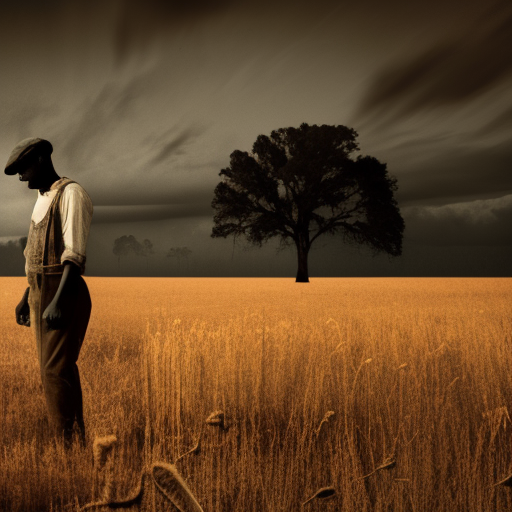One-line Summary:
“Mudbound” is a powerful historical novel that explores the intersecting lives of two families in the Mississippi Delta during and after World War II, highlighting the deep-rooted racism and the enduring power of hope.
The Lives of Two Families Collide:
Set in the Mississippi Delta in the 1940s, “Mudbound” by Hillary Jordan tells the story of two families, the McAllans and the Jacksons, whose lives become intertwined in unexpected ways. The McAllans, a white family, consists of Henry, his wife Laura, and their two young daughters. The Jacksons, on the other hand, are a black family who work as sharecroppers on the McAllan’s farm.
Henry McAllan, a city-bred man, decides to move his family to a remote farm in the Mississippi Delta. The harsh and unforgiving land, known as Mudbound, becomes the backdrop for the struggles and hardships faced by both families. As the McAllans settle into their new life, they form a complex relationship with the Jacksons, who have been living and working on the farm for generations.
Racism and Prejudice:
“Mudbound” delves deep into the pervasive racism and prejudice that defined the era. The story is narrated through the perspectives of six different characters, allowing the reader to gain insight into their thoughts, fears, and motivations. Laura McAllan, for instance, is a woman trapped in a loveless marriage who finds solace in her friendship with Florence Jackson, the matriarch of the Jackson family.
The novel explores the stark contrast between the lives of the white McAllans and the black Jacksons. While the McAllans struggle with the challenges of farming and adapting to rural life, the Jacksons face the constant threat of violence and discrimination. The racial tensions escalate when Jamie McAllan, Henry’s younger brother, returns from the war and forms a bond with Ronsel Jackson, Florence’s son, who served as a tank commander in Europe.
The Aftermath of War:
As the war ends and the soldiers return home, the lives of the characters are forever changed. Ronsel, who experienced a sense of freedom and equality while serving in Europe, finds himself confronted with the harsh reality of segregation and racism in the Jim Crow South. His friendship with Jamie, a white man, becomes a source of both hope and danger.
The consequences of their friendship reverberate throughout the community, leading to tragic events that expose the deep-rooted racism and prejudice that still plague society. The novel explores the destructive power of racism and the ways in which it shapes the lives of both the oppressed and the oppressors.
Key Takeaways:
- Racism and prejudice were deeply ingrained in the fabric of society during the Jim Crow era.
- The power of friendship and human connection can transcend racial barriers.
- War can both liberate and traumatize individuals, leaving lasting effects on their lives.
“I thought I was done with everything new, but life keeps delivering them to me anyway, new ways to love and lose and suffer.” – Hillary Jordan
In “Mudbound,” Hillary Jordan skillfully weaves together the lives of two families, exposing the harsh realities of racism and prejudice in the Jim Crow South. Through her vivid storytelling and compelling characters, she explores themes of hope, resilience, and the enduring power of human connection. The novel serves as a powerful reminder of the importance of confronting and challenging systemic racism, both in the past and in the present.












